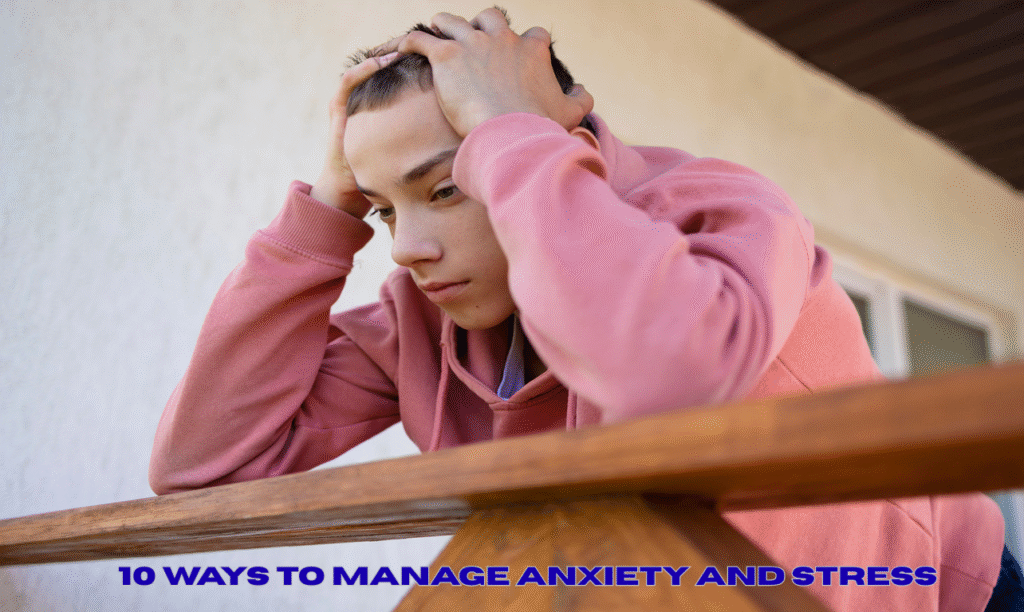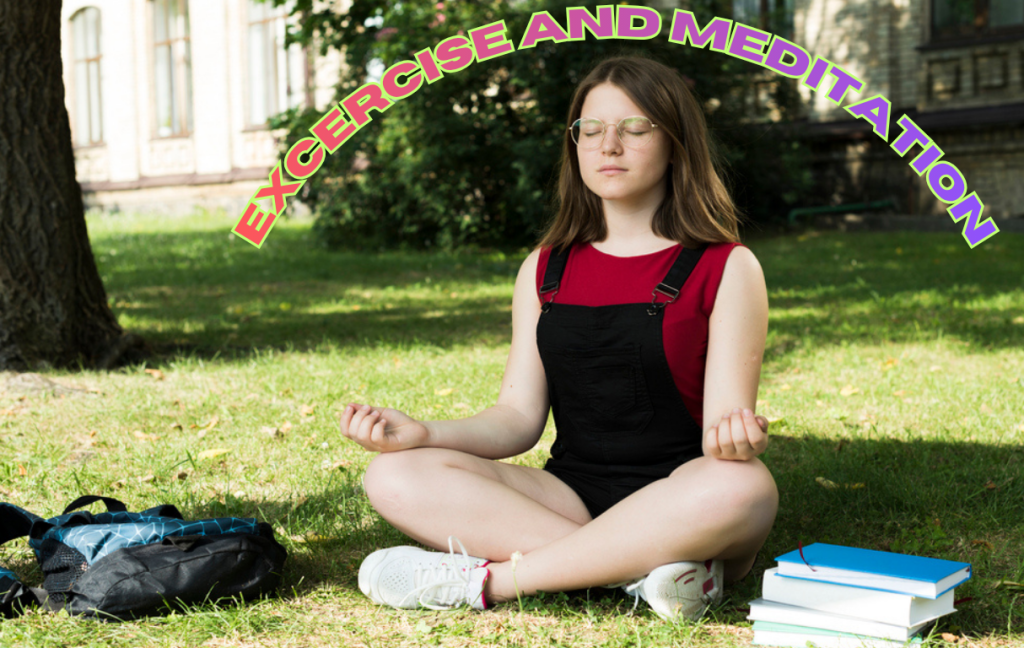10 Golden Tips to Manage Anxiety and Stress in Teenagers

We’re going to explore at least 10 golden tips to manage anxiety and stress in teenagers. As a teenager, stress and anxiety are likely familiar to you. It’s easy to feel overwhelmed by friends, family, school, and extracurricular activities. You’re not alone yet, so don’t worry. There are ways to manage the anxiety and stress that many teenagers face. These feelings are entirely normal whether you’re managing with the pressure of an exam, social expectations, or just trying to find out who you are.
Table of Contents
ToggleThe most significant goal is to learn productive and effective ways to cope. You can manage your stress and find more harmony in your life with an appropriate mindset and simple daily activities.
Understanding Anxiety and Stress
Let’s initially understand stress and anxiety before moving on to methods for treatment:
- Anxiety: An excessive feeling of worry, nervousness, or fear is known as anxiety. Anxiety may be an expected response to stress, but for some, it may develop into a chronic problem that hampers everyday life.
- Stress: An emotional or physical reaction to a stimulus that puts you off balance is known as stress. Several factors, such as relationships, school, or personal issues, can trigger it.
Signs of Anxiety and Stress
How can you recognize if you’re stressed out or anxious? Here are a few common signs:
- Physical symptoms involve tight muscles, headaches, stomachaches, and abnormal sleep habits.
- Feeling stressed out, distressed, or anxious are symptoms of emotional symptoms.
- Behavioral symptoms involve substance abuse, procrastination, and social situation shyness.

10 golden tips to manage Anxiety and Stress
Upon reviewing the basic concepts, let’s explore some useful tips for teen stress and anxiety control.
1. Deep Breathing Exercises
You are at ease with both your body and mind by performing deep breathing. Try to take a deep breath through your nose, holding it for just a moment, and then slowly let it out through your mouth.
2. Exercise and Physical Activity
By creating endorphins, commonly referred to as “feel-good” hormones, regular exercise can help reduce stress and anxiety. Whether it’s dancing, running, or walking, find whatever you enjoy doing and integrate it into your daily routine.
3. Mindfulness and Meditation
You can stay focused and in this moment by exercising mindfulness and meditation, which can help you stress less about the past and the future. Before you get started, look into YouTube videos or apps that provide guided meditation.
4. Nutrition and Diet
Your mental health can be maintained by consuming a nutritious diet full of fruits, vegetables, nutritious grains, and lean proteins. Stay away from processed and sugary foods, as those may render stress and anxiety deeper.
5. Time Management
Anxiety and stress factors may increase as a consequence of poor time management. To maintain a healthy work-life balance, prioritize your responsibilities, make achievable objectives, and take regular breaks.

6. Journaling and Writing
You can process and release a variety of emotions by expressing your thoughts and emotions in writing. To express one’s feelings, try writing short stories or writing a diary.
7. Social Support
Be in the surrounds of friends and family who are ready to support you emotionally and make you feel less isolated.
8. Healthy Sleep Habits
To assist in regulating your mood and reducing anxiety, try to get 7 to 9 hours of sleep nightly. Create a relaxing bedtime routine and adhere to a consistent sleep schedule.
9. Relaxation Techniques
To relax your body and mind, try techniques for relaxation like yoga, progressive muscle relaxation, or visualization.
10. Seek Professional Help
See a mental health professional for guidance if you’re experiencing continuous anxiety or stress. They may provide you therapy, support, and specific guidance to help you manage your symptoms.

Conclusion
Teenagers need to incorporate self-care, tension-reduction methods, and interaction with others to successfully cope with their anxiety and stress. You can reduce your stress and anxiety levels while improving your overall health simply by incorporating these methods into your daily life.
Additional Tips
- Nurture self-compassion: Treat yourself with the same thoughtfulness and understanding as you would a close friend in order to nurture self-compassion.
- Engage in pleasant activities: You may distract your focus from anxiety and stress by doing something that you enjoy.
- Take regular breaks: Try to take regular breaks to avoid burnout and help you refuel.
- Seek support from others: Do not hesitate to ask for assistance from friends, family, or a mental health professional.
You can cope with the challenges of teenagers more simply and fearlessly if you heed these suggestions and put your mental health first.
